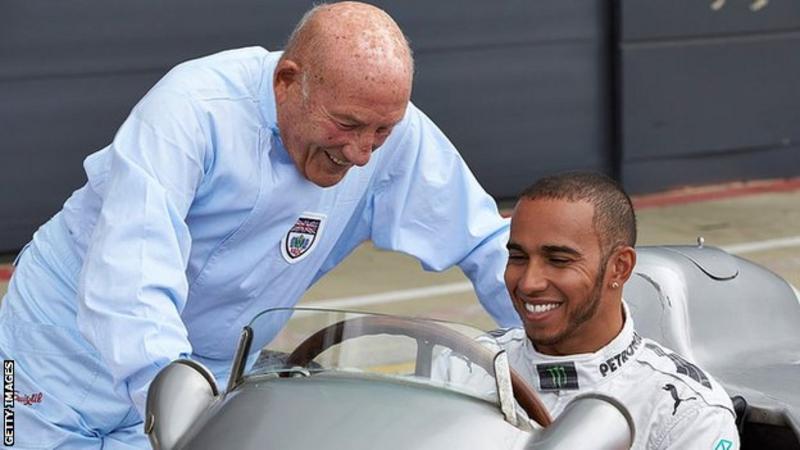
Moss raced in Formula 1 in the sport's romantic age of the 1950s and early 1960s, winning 16 grands prix. Yet despite his rivals at the time acknowledging he was the best, he never won the World Championship.
Partly, that was to do with bad luck - poor reliability certainly hurt him in the two seasons he should have won the title, in 1958-59.
Partly, it was because of his determination to drive for English, privateer teams, particularly the one run by his friend Rob Walker.
And partly because of a racing driver's determination to put victory before all else.
But to those who know motorsport, Moss' failure to win the drivers' World Championship reflects not at all on his ability, and only on the fact that the sport's greatest prize depends at least as much on a driver's machinery as it does his talent, and therefore can never be the only gauge of their ability.
In Moss' case, there was never any doubt how good he was. From 1948 to his enforced retirement in 1962, Moss won 212 of the 529 races he entered across all motorsport categories. Of those who raced against him, only the greats Juan Manuel Fangio and Jim Clark were comparable, and the careers of Moss and Clark only briefly coincided.
Fangio was different - for the two were rivals for six years in the 1950s, and team-mates for one.
Some observers claim Moss was better even than Fangio. Like Ayrton Senna, Michael Schumacher and Tazio Nuvolari, each man has advocates who believe he was the greatest racing driver of all time.
[url=https://www.bbc.co.uk/sport/formula1/52260896]Continues here...
[/url]






